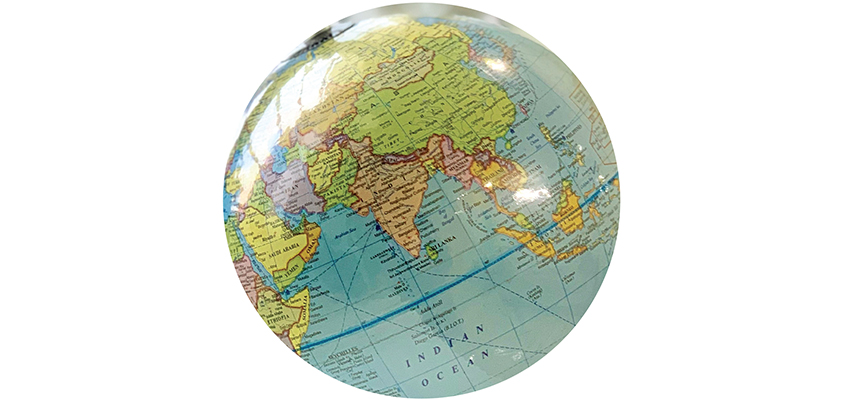While there may be euphoria over the Ram Lalla Temple in Ayodhya and a booming stock market, the turmoil of War in various parts of the world has a significantly bad effect on one and all
We have experienced the best of times and the worst of times in the past few months. The Ayodhya ceremonies for the return and installation of Ram Lalla in the newly built temple were conducted with the solemnity and national attention it truly deserved. If the comment that Ram is the Lord of all communities and indeed the whole world seemed a little rhetorical, there is no doubting the “feel good” generated. But, the challenges the world is facing today and the potential impact on India, continues to be a cause for worry.
The good news is that the continuing euphoria in the stock markets and the confidence that burgeoning domestic demand will insulate India from the vagaries of global economies, will keep the faith of domestic and global investors high, at least for the next six months. There is an economic theory which argues that increased prosperity for the top 10 to 15 per cent of the population will result in trickle down benefits for the next 20 per cent. It will of course need GDP growth rates to cross eight per cent and sustain for a decade and more. That will enable free and subsidised supplies to be replaced by real job creation and prosperity for all—difficult but at least there is confidence that we are moving in the right direction.
The rest of the world is unfortunately a different topic. The continuing conflict over Ukraine and the determination of Israel to continue their bombing of Gaza in retaliation for the October 7th aggression by Hamas is concerning, to say the least. With the conflict already spilling over to the Houthi aggression and the threatened US retaliation against Iran backed forces, a solution in the near term is hardly likely. Added to that, the uncertainties over continuance of the Democrats in power in the USA and the Conservatives in power in the UK, make for an uncertain world certainly through 2024 and beyond.
A clear economic fallout is the demand for Basmati long-grained rice from India, from the usual buyers in the US, Europe and Middle East, which has sharply dropped due to unaffordable price escalation caused by the tensions in the Red Sea. The same is true for shipments of tea, spices and grapes, creating losses for exporters, while imports of fertilisers, electronic goods and machinery are suffering delays and consequent increased costs for consumers. A recent report from Al Jazeera suggests that 50 per cent of India’s exports of 217 billion dollars and 30 percent of imports of 205 billion dollars (March 2023 figures) could be impacted, costing over 30 billion dollars losses to the economy.
There are other negative consequences too of continuing conflicts. While India, under the stewardship of Prime Minister, Narendra Modi and External Affairs Minister, S. Jaishankar, has established a position of strength and a place at the high table of all trading blocs and associations, the decline of the Chinese dragon economically and politically and the near implosion of Pakistan, means that India is relatively becoming the West’s best ally in the global South. This creates many opportunities for the country as the very successful G-20 summit showed but also places a responsibility to be more inclusive in our actions within the country and the world. This is not easy when there are conflicting objectives.
A case in point was a panel discussion at the recent Bhopal Literature Festival, when a former Vice Admiral of the Indian Navy argued passionately for the creation of a strong Naval base at Indira Point on the Great Nicobar Island, the extreme Southern tip of India. He also supported the recent plan to make that area a military as well as tourism paradise. The two ecologists on the panel argued that this could be detrimental to the environment as well as marine life including the leatherback sea turtle that breeds at Indira Point. These conflicts between the need to protect the country against real and potential military threats and the need to save the planet will continue to happen.
Inclusion is a many faceted imperative. Globally, there is a need to include our trading partners and most important our South Asia neighbours in the growth of our economic and diplomatic status. Spats like the recent one with Maldives and the looming threat of Chinese activism in the islands and also in Sri Lanka and Bhutan threaten to sour the climate and have to be handled with diplomatic finesses. And within India, Ram Rajya and Amrit Kaal have to result in prosperity and happiness for all, a difficult but certainly a vital objective that all of us must hold high in the list of our goals for building a truly successful country.
